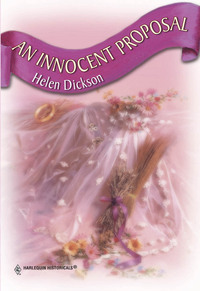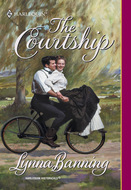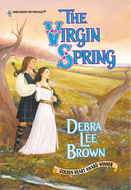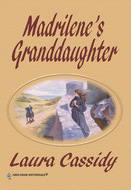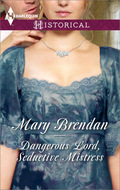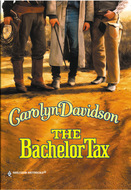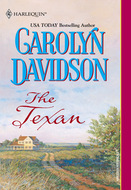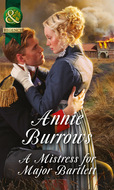Kitap dosya olarak indirilemez ancak uygulamamız üzerinden veya online olarak web sitemizden okunabilir.
Kitabı oku: «An Innocent Proposal», sayfa 2
“Then I shall speak to him. He must listen to me,” Louisa said in desperation, making a move towards the table.
“Wait, Louisa,” Timothy said, putting a restraining hand gently on her arm. “Leave him. It may surprise you to know that James is winning. He will not thank you for interfering.”
“Winning?” Louisa exclaimed in surprise, staring up at her brother’s long-time friend. “By how much?”
“Fifteen thousand guineas.”
Louisa gasped, astonishment mingled with relief flooding over her, unable to believe what she was hearing, her mind already racing as she calculated what could be done at Bierlow Hall with such an enormous amount of money.
“Then before he begins to lose, please tell him to stop now.”
Timothy sighed. “I will try, but I know he will refuse. I’ve seen him in this mood before when he thinks everything is going his way—and I have to tell you that the liquor he has consumed has increased his habitual readiness to take risks to a point of madness.”
About to move away, Timothy looked sideways sharply when a man moving close to Louisa caught his attention. She acknowledged the man with a faint smile and a nod, which gave him the feeling that they had already met. It was Sir Charles Meredith, a notorious rake and debauchee of the worst possible kind, and Timothy did not like the way he clung to Louisa’s side, watching her, speculative and predatory.
But Louisa had already forgotten Sir Charles Meredith, and she felt her heart lurch to a sickening degree as she watched the group part to let Timothy through, seeing once more her brother’s flushed, handsome countenance and his sleek, ash-blond hair falling untidily over his brow. There was a glazed set to his features and a grimness in his eyes.
Through the gap James looked blindly in her direction, his eyes registering surprise when they focused on her presence and her worried amber eyes. Anger flared in his own and his full lower lip curled with disapproval, but he refused to allow himself to become sidetracked from the game in hand by an angry sister, who should have known better than to follow him to London. He brushed Timothy aside when he bent and whispered in his ear, refusing to listen, uttering disappointment when his partner rose from the table, having lost the game and reluctant to play on.
Louisa was swamped with relief, sure that he would finish now and come away. But another man came and sat opposite James, cutting one of two packs of cards on the table with slender, flexible fingers as they prepared to begin a game of piquet. It was a game for two people which offered excellent scope for both intelligence and judgement, something which James would have risen to had his head not been fogged with the fumes of alcohol.
Louisa’s eye was caught by a woman coming to stand behind James’s opponent, a bold woman with a handsome face, stunning in a purple and mauve gown cut so low as to leave little to the imagination. Her hair was red, too red to be real, and in response to her whispered question Timothy told her it was none other than their hostess, Lady Bricknell. The flamboyance in her attire and jewels showed that she had been left well provided for by her departed husband.
Curious now she was seeing the notorious Lady Bricknell in the flesh, and recollecting the reputation she had acquired over the years, Louisa found herself staring at her; despite having a taste for the theatrical which verged on the vulgar, Lady Bricknell was a desirable asset to London’s social scene—a woman who lived for pleasure, and a woman of taste and wit who was prized as much for her company as her beauty and flaming red hair.
Seeing that both men were so intent on the game and each other that they barely glanced at the small crowd gathered around the table, with a charming smile on her crimson painted lips, Lady Bricknell moved away to pay attention to her other guests, but Louisa sensed by the way she gently squeezed the gentleman’s shoulder with bejewelled fingers, before drifting away, that their relationship went way beyond that of mere acquaintance.
The game followed the classic pattern with James winning a little, then losing more and more, until he ceased to win anything at all as his partner, who, unlike James, was completely unaffected by alcohol, raised the stakes higher and higher. With a mixture of languor and self-assurance, his eyes on the cards did not stir.
Louisa watched with the sickening knowledge that because of James’s reckless stupidity they were about to lose everything they owned.
“Dear Lord,” said Timothy quietly, careful not to let Sir Charles, who had not relinquished his stance beside Louisa, overhear—although, like every other spectator, Sir Charles’s attention had become taken up with the game. “’Tis sinful the way James loses money.”
“Sinful? This whole house reeks of sin, Timothy, and it is sinful of James to gamble away what little we have left. No doubt he will blame me for changing his luck,” she whispered to Timothy, who was looking on with deep concern.
“If he loses it cannot be blamed on you. Not when he is playing Lord Dunstan.”
Louisa glanced at him. “Lord Dunstan? Who is he? I cannot say that I have ever heard of him.”
“Perhaps that’s because he doesn’t often come into society. He is extremely skilful at cards and a great number of people have lost whole fortunes to him. His personality is so strong that with a lift of one of his arrogant eyebrows, or a flare of a nostril, it is not unknown for his opponent to tremble with fear and drop his cards. He is hard and ruthless and enjoys winning at any form of gambling—and cares little for those who suffer as a consequence.”
“Why is he so unpleasant?”
“It isn’t that he’s unpleasant. In fact, he can be quite charming, especially to the ladies, who fair drool over him—and it’s not difficult to see why with his looks. It’s the way he rides roughshod over everything and everybody that puts people’s backs up.”
“He sounds positively horrid,” said Louisa.
“Lord Dunstan can afford to be anything he wants to be. He is immensely rich and extremely important. His estate in Sussex is fabulous and his stable envied by all.”
Louisa sighed. “Poor James. He doesn’t stand a chance of winning against such a man.”
She looked at the aforesaid gentleman properly for the first time, recognising authority when she met it. Then she frowned, for there was a faint glimmer of familiarity to his features, but she could not for the life of her think where she could have seen him before. Excitement that was due as much to his appearance than anything else swept over her. Although he was seated, she could tell he was extremely tall, with powerful shoulders and long muscular legs. Unlike the other gentlemen, who were dressed like peacocks in a multitude of the customary bright colours, he was clad in jet-black, with the exception of his snowy white shirt and cravat, which gleamed in stark contrast to his black suit and silk waistcoat.
He wore no wig, and his own hair was thick and deep brown, with, Louisa suspected, a tendency to curl. It was smoothly brushed back from his wide brow and fastened at the nape of his neck. There was a strong, arrogant set to his jaw and his face was as hard and forbidding as a granite sculpture, his fingers handling the cards with expert ease long and slender. In fact, everything about him exuded brute strength and arrogant handsomeness.
He was the kind of man who was capable of silencing a room full of people just by appearing in the doorway—whose attitude was that of a man who knew his own worth.
She didn’t realise she was staring at him until his instinct made him look up, as if sensing her gaze, and Louisa felt her breath catch in her throat when his eyes locked onto hers, compelling and piercing, and the most startling shade of blue. In fact, they stirred some vague memory and it bothered her, for she was convinced she had seen eyes that colour once before, but where? His dark brows lifted a fraction in bland enquiry at her gaze and he appeared to look her over in a hard, contemplative way, smiling ever so slightly in an appraising manner when he seemed to like what he saw, bringing a crimson flush to her cheeks.
Suddenly his gaze was arrested by the sight of her companion, Sir Charles Meredith, and Louisa saw a tightening to his features as his eyes narrowed and swept over the other man like a whiplash. The look that passed between them crackled with hidden fire, and for just a moment she saw something savage and raw stir in the depths of Lord Dunstan’s eyes, before they became icy with contempt.
Looking up at Sir Charles, she saw his lips curl with something akin to sly amusement mingled with hatred, and he nodded ever so slightly in acknowledgement, which Lord Dunstan did not deign to return. Undeterred, Sir Charles casually took out an elegant ornamented silver snuff box and took snuff, delicately touching his nostrils with a lace handkerchief before smiling down at Louisa’s upturned face and charmingly excusing himself before moving away.
Louisa was puzzled by the incident, curious as to what had induced this unconcealed dislike between the two gentlemen, but she was more puzzled by the fact that she remembered Lord Dunstan’s face but could not quite place it. Her mind raced through the places she had been where she might have seen him, but in the end she gave up, which was odd, because it would not be easy to forget the startling directness of those vivid blue eyes.
For the next half-hour Louisa watched every move of the game with a sinking heart, the tension becoming unbearable as James lost more and more of his winnings to Lord Dunstan, who presided over the game like a predatory hawk. Her anger was growing by the second but she tried not to show it, attempting to maintain a façade of disinterest and indifference. She tried to look as relaxed as the other women and to pretend to be one of them, pinning an artificial smile to her face when a florid-faced gentleman next to her complimented her on her beauty, and moving closer to Timothy with an intimacy which told the gentleman she was not available.
Fixing her attention once more on the game, she saw that Lord Dunstan was experienced, and that the more James lost, the more Lord Dunstan incited him to go on playing, to bid higher and higher. He must have been able to see James was drunk and not in possession of his right senses. He would have had to be blind not to, but he lounged indifferently across from him, his expression bland as he coolly regarded her brother, whose flushed face and nervousness clearly betrayed his emotions.
When James had lost his former winnings, pushing a pile of banknotes into the centre of the table, Lord Dunstan raised the stake yet again by one thousand guineas, and Louisa could not believe it when James, in an agitated state, accepted the bet, knowing all he had left to stake were the deeds of Bierlow Hall.
No longer able to stand by and watch his friend lose every penny to his name, Timothy stepped forward.
“Don’t be a fool, James,” he told him. “You cannot cover the bet if you lose. After losing what you have won tonight, you no longer have one thousand guineas to your name.”
Impatient at being interrupted, James shot him a look which told him not to interfere as he put his signature to a chit and placed it with Lord Dunstan’s money in the centre of the table. “There you are mistaken. I can afford it. I will take the bet, and I aim to win it back on the next hand.”
Lord Dunstan seemed irritated by the interruption, noticing James’s slight hesitation. “Do you continue?” he asked curtly.
“I continue,” James replied firmly.
Louisa flinched, trying not to look at Lord Dunstan’s glacial expression, making up her mind there and then that the man was despicable, but her anger was also directed at James. How could he go on playing, gambling away everything they owned? Their father would be horrified—although if he had not invested his money so badly when he had been alive, she and James would not be in the position they were in now. Their father had been too interested in his horses and his dogs, paying little interest to what was happening in the financial world until it was too late to do anything about it.
At twenty years old Louisa was younger than James by two years, but she had always been the sensible, practical one, while James was somewhat reckless and foolhardy and liked to live life to the full and in comfort. She had tried to guide and protect him since the death of their father four years ago, and would have dearly liked him to buy a commission in their father’s old regiment, but they could not afford it. However, with Britain now at war with France, at least she could take comfort in his not being killed on some far-off battlefield.
But James was not entirely selfish, believing that once he had established himself a fortune he would bring Louisa to London, where he would set about finding her a suitable husband.
Louisa turned and left the table just as the last hand was being played, no longer able to watch James lose all the money he had won earlier. No doubt four thousand guineas was a modest sum to Lord Dunstan, whereas to herself and James it was a fortune. Not until the game was over did she turn back to see Lord Dunstan rise from the table.
“Thank you. That was an excellent game,” he said as James quickly signed an IOU for the four thousand guineas he owed. James handed it to him and watched Lord Dunstan pocket it before slumping in his chair with the knowledge that he would have to face the enormity of his loss and his sister.
For the first time a thin smile curled Lord Dunstan’s lips, his eyes showing contempt for his victim, utterly unconcerned for the pain he knew he must be feeling, and knowing that in situations such as this it was not uncommon for a man who had staked his entire fortune on a game of cards to go out and shoot himself.
“Rotten luck,” Lord Dunstan said calmly, his voice of a rich, deep timbre, “but that’s how it goes. I think refreshment would be in order now, don’t you? Come, Fraser, what do you say?”
Trying to maintain some semblance of dignity, James rose. “Yes, of course. Please—excuse me a moment,” he said, moving to where Louisa was standing with Timothy, feeling so utterly wretched and miserable that he had forgotten his earlier outrage her presence had caused him, and that normally he would have chastised her most severely for daring to set foot inside such an establishment as this and ordered her home at once.
Lord Dunstan followed him.
“If you wish to try to recoup your losses and exact your revenge, I will give you the opportunity of doing so. Please accept my invitation to Dunstan House on Thursday night. You and Mr Hacket will be more than welcome,” he said, his gaze including Timothy, “and might I suggest you bring your lady friend? The company will be mixed,” he added, his eyes flicking over Louisa without the slightest acknowledgement, which set her blood boiling. She was insulted that he thought her of so little consequence that he had no interest in being properly introduced, which courtesy and good manners demanded when one addressed even the meanest of women. The man was truly a monster.
“Yes, of course. Thank you,” said James, unaware of the murderous look his sister was giving him.
“Oh, but you can’t,” Louisa burst out suddenly, causing James to turn and gape at her in angry surprise, and with a presence of mind she didn’t know she possessed she smiled brightly at all three, using all her feminine wiles as she leaned towards James, coquettish and enticing, and spoke in a flirtatious tone while focusing the full force of her dazzling amber gaze and bewitching smile on her brother with merry defiance. “You are already promised to me that evening, James. You promised to take me to the pleasure gardens across the river, if you remember.”
“I did no such thing,” James said indignantly, giving her an angry, censorious look which she ignored, determined to keep him away from Lord Dunstan and his card games at all costs.
“Yes, you did,” she argued gently. Normally she would not have dared to be so bold or so outspoken, but anger gave her the courage to refuse to feel intimidated by this arrogant, despicable man. Linking her arm possessively through James’s, she gazed up at him languidly from under her thick lashes. “I shall be mortified if you disappoint me and break your word. I am so looking forward to it, as well you know. After neglecting me so abominably all evening, I will not allow you to push me aside yet again for a game of cards which, I observed, you do not seem to possess a talent for and which I consider in such cases is best left alone.”
James was clearly furious, finding his sister making up to him as though she were his doxy quite shocking. He was at a loss to know what to say or how to deal with the situation, and before he could say anything Lord Dunstan had fixed his gaze on Louisa, trying hard to decide if she was genuine in her claim that Fraser had promised to take her to the pleasure gardens or a gifted diplomat.
“One can visit the pleasure gardens any evening, Miss—?”
“Divine,” Louisa said hurriedly, drenching him in her most charming smile, without thinking of the consequences of her fabrication or the connotations of the name she had chosen at random.
“Miss Divine,” he went on, with a slight lift to his sleek eyebrows, his hard face wiped clean of all expression, except for a faint smile in which Louisa caught a glimpse of dazzling white teeth, “whereas invitations to Dunstan House are seldom given and, if they are, are not issued lightly.” He fixed his gaze once more on James. “The invitation stands if you should change your mind.”
He seemed to study Louisa for a moment, his blue eyes levelled on hers, penetrating and disturbing, before inclining his head in the faintest mockery of a bow and moving away. He’d realised the moment he had set eyes on her standing between young Hacket and Charles Meredith that she was the woman he had seen at Vauxhall Gardens and again at St. Paul’s Church two months ago—the woman who had left an indelible trace on him. Clearly she was Fraser’s mistress, and familiar with his own most hated enemy and neighbour, Sir Charles Meredith, but that did not prevent him being curious and wondering about her, wondering how a woman who prayed in church so fervently could live the life she did.
His lips curled in a smile, his mind already working on ways he could get to know her better, undeterred that she might belong to Fraser. His sharp eyes had noticed that Charles Meredith also had designs on her—the signs he recognised from bitter, past experience—and the idea of scoring off him appealed greatly to his sardonic sense of humour, knowing how immensely satisfying it would be to steal her from under Meredith’s nose, to avenge himself for all the villainous acts the man had inflicted on him in the past.
But, on reflection, all such dealings were abhorrent to him. Alistair had many faults, but it was not in his nature to inflict injury or insult on any man who was guilty of wrongdoings against himself, and he wanted nothing more to do with Sir Charles Meredith.
Chapter Two
When Lord Dunstan had moved on, James turned on Louisa, furious with her.
“What in God’s name do you think you’re playing at, Louisa? How dare you humiliate me in this manner? What are you doing here?”
“Do I really have to tell you?” she answered accusingly. Aware that people were beginning to glance their way, becoming curious as to her identity for she was a stranger to them all, she had no intention of airing their grievances in public. “Take me home, James. I do not wish to remain in this place a moment longer.”
James did not need to be asked twice. Timothy chose to stay, hoping to spend the rest of the evening in the company of a wench he had been wooing assiduously for weeks. Besides, he thought that James would be better left alone to be admonished in private by his sister.
Timothy had always admired Louisa—although they had been friends for too long for there ever to be anything of a more intimate nature between them—and he had frequently reproached James for neglecting her for the amusements in London. James had been his closest friend since their school days, and he had often thought it a pity James had not been blessed with his sister’s common sense.
James had felt the lure of the amusements in London soon after his father’s death—his mother having died a year earlier. The green baize tables had attracted him with the promises of pleasure and reward more certainly than anything Bierlow had to offer, and the heady temptation to gamble and to go on gambling was something he could not resist.
Not until they were in the carriage taking them home did either Louisa or James speak, James being the first to do so, still enraged by his sister’s behaviour and his own foolishness. He cursed himself severely, knowing he should have taken Timothy’s advice and left the table when he was in front. The seriousness of the situation had not hit him yet, but when it did it would be with the force of a hammer blow.
“How dare you come to London without my permission, Louisa?” he exploded. “Your behaviour is totally out of character. You had no business turning up at Bricknell House like that—an establishment totally unfitting for a sister of mine. And as if that weren’t bad enough, you have to appear on the arm of Charles Meredith of all people. He’s one of the most notorious rakes in London, a rampaging womaniser who sows the wildest of oats. His father may have left him a fortune when he died, but the manner in which he squanders it at the gaming tables will very soon lead him down the same path as myself.”
“That, James, is rather like the pot calling the kettle black,” accused Louisa harshly. “You both share a penchant for wild extravagance and high living.”
“Perhaps. But that is where the similarity to myself ends. He is a worthless libertine and no one with any sense will have anything to do with him.”
“How was I to know that? Although I have to say,” she admitted when she recalled his predatory manner and the glib way he had spoken to her, “I did not care for him in the slightest. But I confess it was gratifying to gain a man’s interest and admiration—even if the gentleman paying me the compliments did happen to be a notorious rake. He did try flirting with me—quite shamelessly, in fact—and it makes me realise just how dull and dreary my life is at times, in comparison to all the ladies I have seen this evening.”
Louisa knew that James was displeased by her reply but chose to ignore it, in no mood to listen to her complaints. “What is this business of pretending to be Miss Divine?”
“I came to London when I discovered you had taken certain items of value from Bierlow, which I knew you intended selling in order to pay for your gambling. And do not try to deny it because I know you too well. And as for turning up at Lady Bricknell’s and calling myself Miss Divine, I had no choice…although I do regret my ridiculous choice of name. I suspect it might have had something to do with having just set eyes on the glorious and extremely colourful Lady Bricknell, who certainly lives up to how people describe her,” she said. “I had no wish to embarrass you by announcing I was your sister.”
“How very thoughtful of you,” he replied drily. “How did you know where to find me?”
“Alice told me. I came as soon as I could with the vain hope that I might be in time to prevent a major disaster from occurring at the tables. Unfortunately I came too late,” she sighed. “Perhaps if you hadn’t drunk so much in the first place you might have retained a little of what you had won.”
“If Lord Dunstan hadn’t been there—blast him—I would have won more. Hell and damnation! Just when things were going well for me. It had nothing to do with the drink—it’s just that his skill at cards is not to be matched by anyone I know.”
“Then why did you allow yourself to be drawn in by him?”
“Must you always disapprove of everything I do, Louisa?” James remarked crossly.
“Of course I disapprove. I cannot condone your private life or your behaviour. Oh, James, how could you?” she accused him bitterly. “How could you gamble away everything we own?”
“It is not as bad as you think,” he replied lamely.
“How can you say that?” Louisa admonished harshly. “Don’t be stupid. Of course it is. Things are bad, very bad. In fact they could not be worse. We are in a hole and I cannot see any way out—unless we throw ourselves on Lord Dunstan’s mercy and persuade him to tear up your IOU.”
James was clearly shocked by her suggestion, which no gentleman would even consider. “That is quite out of the question, and, besides, Lord Dunstan would refuse. But if I don’t honour the debt I will be thrown out of my club and into the debtors’ prison. I couldn’t bear that, Louisa. The shame would be unbearable.”
“Better that than we lose everything. You do realise we will have to sell Bierlow Hall, don’t you, James?” she said despairingly, the mere thought that their home, which had been in their family for two hundred years, would be gone for ever bringing tears to her eyes. “There is no other way we can obtain four thousand guineas that I can see, and I doubt that will be enough to cover the whole debt or that the bank will grant us a loan.”
As if ashamed of his recklessness and the hurt he had caused his sister, James’s expression became contrite. “Forgive me, Louisa. I do realise that we’re in the deuce of a mess.”
“How long before the debt must be paid?”
“A week.”
“As soon as that?” she whispered. “You will not accept Lord Dunstan’s invitation to go to his house, will you, James? Nothing can be achieved by it.”
James frowned, impatient at her naivety, still determined to try and recoup his losses in the only way he knew how. “You are a simpleton, Louisa. Don’t you know anything? You have spent so much of your time in the country with your head in the clouds that you have no conception of life in fashionable London. Lord Dunstan is one of the most important men in town. He rarely entertains, and no one in their right mind turns down an invitation to dine at Dunstan House.”
Louisa’s face turned pale. “That may be, but what is the point in going when you have nothing to gamble with? You have nothing left to cover your bet if you should lose. James, we can’t let Bierlow go.”
“If it comes down to it we’ll have to,” he replied, not sharing Louisa’s fondness of the family home. Anger at himself coiled within him, which he turned momentarily towards his sister. “Bierlow is the only thing left that would be worth money in the sums I need. You would have to come up to London and live with me.”
“No, James,” Louisa replied sharply, his airy tone whipping up her anger, unleashed irritation flooding through her. James had always been selfish—selfish and unthinking in his impulsiveness, in his assumption that what he did was all that mattered, forcing her to adjust her life to his. “I couldn’t.”
“You’ll have to. There’s nothing else for it.”
Louisa fell silent. James was becoming irritable and soon he would become more angry. How well she knew his moods, she thought miserably. An inexplicable weariness and pain lay heavy on her heart, the deepest, cruellest pain she would ever know. Despite James’s willingness to sell Bierlow Hall, it would tear her apart if she had to leave her beloved home. She would fight tooth and nail to hold onto it. Ever since their father had died, leaving them in dire straits, she had come up against so many obstacles, just managing to surmount them, and almost wearing herself out into the bargain, but this seemed to be just one obstacle too many.
No greater crisis had ever confronted her.
With his head pounding with a frightful hangover, after having spent most of the night trying to obliterate what he had done in a bottle of brandy, James Fraser rose the following morning from the bed in which he had fallen into a dissolute, drunken slumber in the certain knowledge that ruination was staring him in the face, unable to see how he could survive it. He surveyed bleakly what the remainder of his life would be like and it was not pleasant. It was not only himself who would suffer as a consequence of his recklessness at the card tables, but his sister also, and in that he could not defend himself.
When he entered the breakfast room Louisa was there already, looking unnaturally calm, her face pale through worry and lack of sleep. There was only a slight resemblance between brother and sister. Both were fair, but there the resemblance ended. Louisa was like a piece of thistledown with a finely structured face, whereas James was six feet and stockily built, with a strong square chin and grey-blue eyes.
Louisa was shocked by her brother’s appearance. Last night had aged him ten years. He looked thoroughly broken, his handsome face creased with deep lines of anxiety, his clothes and hair dishevelled.
“Dear God, Louisa! How could I have done it? We are in the devil of a fix. We are ruined. Quite ruined.” He threw himself down in a chair, staring with a stricken look out of bloodshot eyes at his sister. “What’s to be done? How are we to be saved?” he cried, looking at Louisa as if she knew the answer.
The appeal in his voice went straight to her heart. Without thinking of how they could save themselves, she went to her brother and put her arms round him. Her eyes were soft and tender and she spoke impulsively, lowering her cheek to his.
